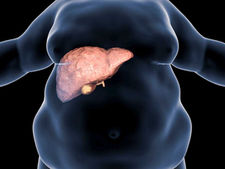
Eyelid Aesthetics / Blepharoplasty
As we age, sagging of the skin naturally occurs due to the effect of gravity. Problems such as sagging, swelling and color changes occur in the lower and upper eyelids. Factors such as exposure to sunlight, air pollution, irregular sleep, excessive smoking and alcohol use accelerate the aging process of the skin.
Eyelid Aesthetics is an aesthetic operation performed to eliminate the aesthetic disorders that occur as a result of bags and fat herniation in the areas around the eyes and loss of muscle function. In addition to the effects of aging, genetic structure and lifestyle also have a great impact on deterioration around the eyes. Some of the signs of aging seen in the lower and upper eyelids; Bags under the eyes and color change. Drooping upper eyelid. Wrinkles and sagging of the eyelid skin. Crow's feet lines around the eyes. A tired and old facial expression. The loose skin that occurs on the eyelids causes upper eyelid deformation.
How is upper eyelid aesthetics performed?
Upper eyelid aesthetics or eyelid deformation surgery is the process of cutting and removing excess skin, fat and muscle tissue in the area. An incision is made at the eyelid fold line to avoid visible surgical scars.
How is lower eyelid aesthetics performed?
The surgical incision is made just below the eyelashes. The skin is lifted and the fat packets found here are spread to the under-eye socket, the excess skin and muscle is cut and removed, and the procedure is completed. If under-eye sunkenness persists after surgery, under-eye fat or filler injection may be required after recovery. The procedure is performed by a method called sedoanalgesia, in which short-acting anesthetic substances are used and the person is discharged for the day. After the procedure, the eyes are dressed with thin sterile tapes so as not to cover them. Stitches can be removed after approximately 7-10 days.
What should be taken into consideration before Eyelid Aesthetics?
Due to the risk of increasing bleeding tendency during surgery, the use of medications such as aspirin and blood thinners should be stopped at least 10 days before the procedure. It is also recommended not to use herbal teas and alcohol, which thin the blood.
FOR INFORMATION AND APPOINTMENT, YOU CAN LEAVE YOUR NUMBER OR ASK OUR EXPERTS
YOU CAN LEAVE YOUR NUMBER FOR INFORMATION AND APPOINTMENT AND ASK QUESTIONS TO OUR EXPERTS



-04.png)
-06.png)
-05.png)
-08.png)
-07.png)























